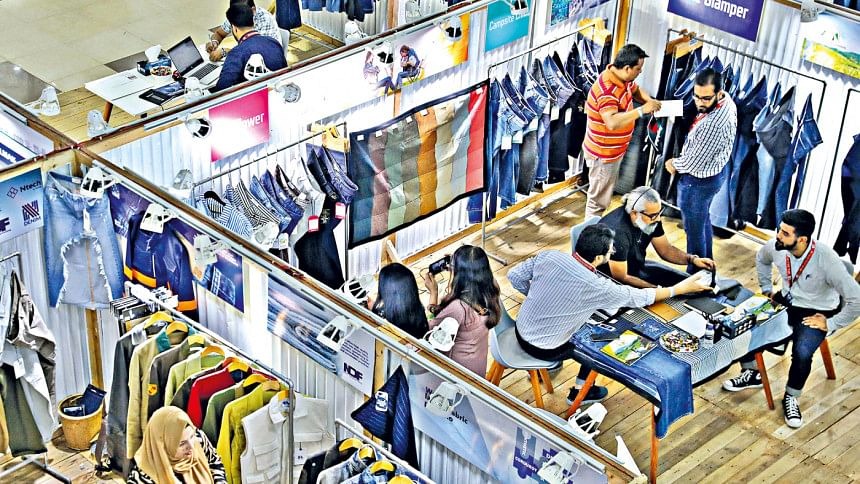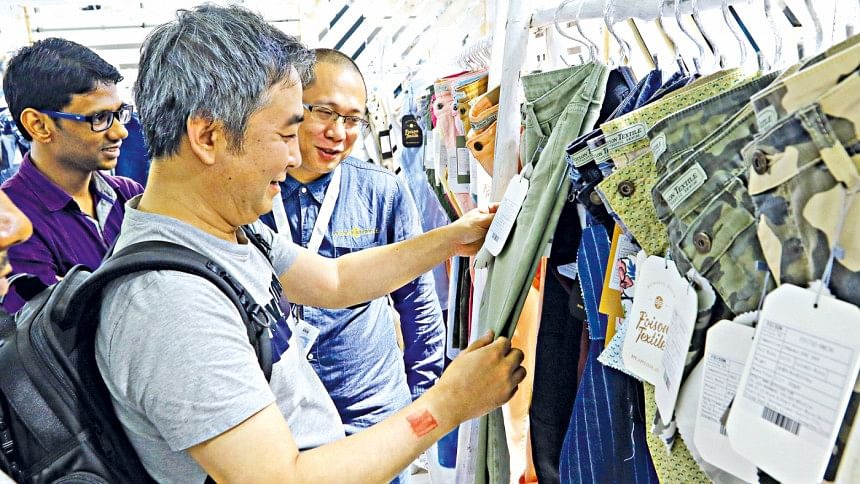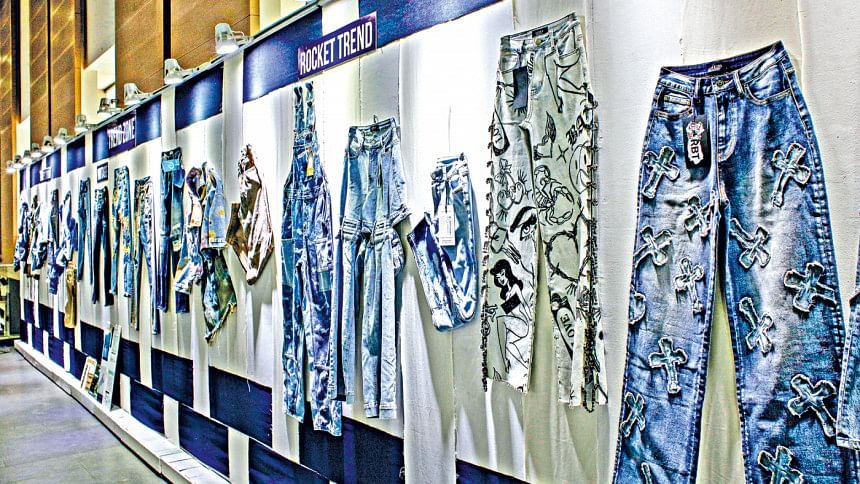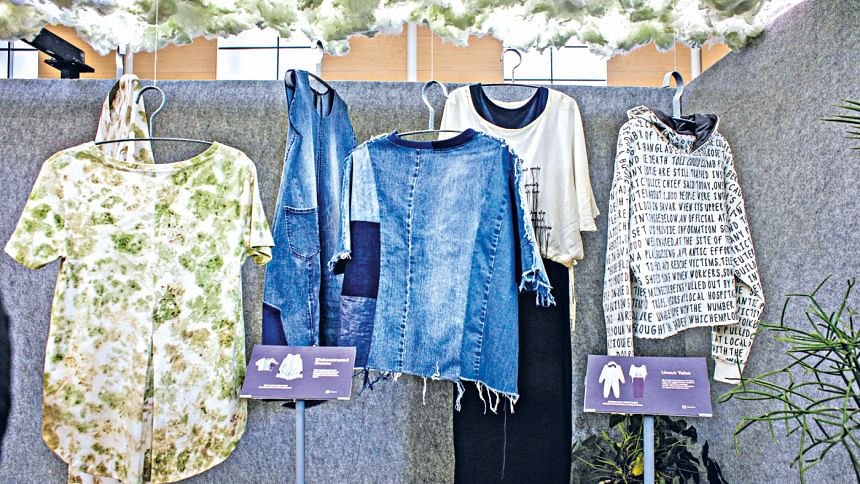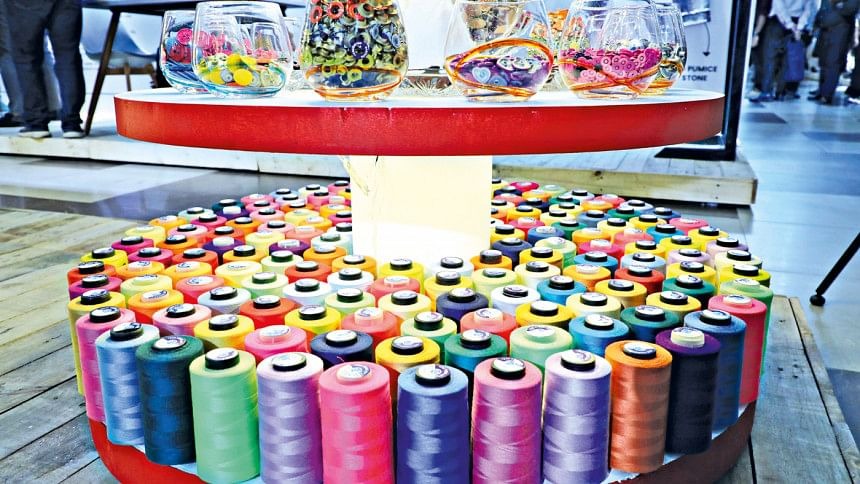Bangladesh’s textile industry, a cornerstone of its economy, is facing mounting challenges as garment makers, particularly knitwear manufacturers, increasingly turn to imported yarn and fabrics despite significant domestic investments.
Industry insiders warn the growing reliance on imports could place local spinners at considerable risk.
Recent data from the National Board of Revenue shows the scale of the issue. In 2024, Bangladesh’s cotton yarn imports surged by 39%, reaching a record expenditure of $2.28 billion. Besides, fabric imports by knitwear factories rose by 38%, costing the country another $2.59 billion.
A significant portion of these imports came from India, heightening competition for domestic suppliers.
This trend is perplexing given the sector’s substantial expansion in recent years.
Following the Covid-19 pandemic, local textile millers invested approximately $2 billion to enhance their capacity and meet growing demand. However, these investments now appear to be under strain as the industry grapples with shifting dynamics.
Garment makers point to factors such as price competitiveness as the reason for preference for imports.
Textile mill owners have raised concerns about the illegal import of yarn through smuggling and the misuse of bonded warehouse privileges, which flood the market with imported yarn
For instance, MB Knit Fashions, located in Narayanganj, has recently secured a purchase order worth $48 million. To meet production requirements, the company has decided to import recycled polyester cotton from India, a fabric made from recycled cotton and polyester fibres.
The imported fabric will cost the company $2.19 per kilogram, delivered to the Chattogram port. In comparison, sourcing the same yarn from local spinning mills would cost $2.45.
Mohammad Hatem, managing director of MB Knit Fashions, told The Business Standard that they have calculated that by importing 800 tonnes of yarn, they would save $208,000.
“If we bought yarn locally, the tax incentives would only result in a post-tax saving of $56,000, leaving us with a net savings of $148,000,” he explained. “So, why would I choose to purchase yarn from local mills under these conditions?”
MB Knit once imported 20% of their yarn, now nearly 90% is imported, said Hatem, who is also the president of Bangladesh Knitwear Manufacturers and Exporters Association (BKMEA).
He mentioned that over 80% of last year’s yarn imports came from India.
Fakir Kamruzzaman Nahid, managing director of Fakir Fashions, shared similar views, saying, “We save about $0.20 per kilogram by importing yarn. Sourcing from India has become more viable, with local sourcing now down to 30%, compared to 50% a year ago.”
Despite the increase in imports, the Bangladesh Textile Mills Association (BTMA) does not have data on how much local mills’ sales have decreased or whether they have declined at all.
However, BTMA data shows that two years ago, local mills supplied around 85% of the yarn for knitwear exports.
Why local mills struggling
Textile mill owners said production costs have increased by 30% over the last two years due to higher gas prices, rising wages, and less gas supply. Despite expanding their capabilities, mills are finding it hard to reduce costs.
Moreover, government incentives for using local yarn have been significantly reduced, they said. Cash incentives have dropped from 4% to 1%, while special incentives have fallen from 1% to 0.3%.
These incentives take up to a year to be processed, and after a 10% tax deduction, additional costs are incurred. As a result, garment exporters are less inclined to use local yarn, according to millers.
Local spinning mills are also unable to lower prices due to a sharp 179% rise in gas prices, the implementation of new wage structures, and increased bank loan costs and stringent conditions.
Additionally, textile mill owners have raised concerns about the illegal import of yarn through smuggling and the misuse of bonded warehouse privileges, which flood the market with imported yarn.
Md Khorshed Alam, chairman of Little Star Spinning Mills, told TBS that the production cost of each kilogramme of 30 count yarn, widely used in Bangladesh’s garment industry, now exceeds $3.
“We sell it at prices ranging from $3.10 to $3.50, but due to declining demand, some mills are forced to sell at even lower prices to avoid losses,” said Alam.
Importers said the same yarn from India is available for $2.90, making them less inclined to purchase from local mills.
Alam, also a director of BTMA, said more than 30 textile mills have shut down in the past year.
This number is expected to increase significantly in the coming year, he said, adding that his own factory is operating at just 40% capacity, and currently, half of the country’s spinning mills are underutilised.
MB Knit’s Mohammad Hatem said due to the government’s flawed policies, Bangladesh’s backward linkage industry will not survive and will become increasingly import-dependent.
“Previous government actions were aimed at strategically handing over the country’s textile industry to foreign entities,” added Hatem.
According to the Association, Bangladesh has around 1,900 textile mills, including spinning, fabric, dyeing, printing, and finishing mills, with a total investment of $22 billion.
Meanwhile, according to the Bangladesh Garment Manufacturers and Exporters Association (BGMEA), Bangladesh’s garment exports increased by over 7% in 2024, with knitwear exports reaching nearly $20 billion.
Is India exporting in dumping price
India has an advantage over Bangladesh as it has its own cotton supply. However, despite this, the production costs in both countries are comparable, at around $3 per kilogramme.
This raises the question: how can Indian yarn exporters sell their products at prices lower than this?
Saleudh Zaman Khan, vice president of BTMA, said the Indian government provides additional financial and policy benefits to the country’s textile exporters, both centrally and at the state level, giving them a competitive edge.
Explaining further, he said, “Textile exporters in India benefit from a negotiable instrument offering 3.88% of the export value or ₹11 per kilogramme, whichever is lower. This scheme is known as the Remission of Duties or Taxes on Exported Products (RoDTEP).”
In addition to this, exporters receive a 2% duty drawback on textile product exports. Combined, these incentives amount to about 6% of their total export value.
According to the Indian Trade Portal, the RoDTEP scheme is designed to help exporters recover the taxes and duties paid on exported goods. It has been in effect since January 2021. Furthermore, various states in India offer additional benefits to their textile entrepreneurs.
Saleudh, also the managing director of NZ textile alleged, “Taking advantage of these incentives, Indian exporters are selling to Bangladesh at dumping prices.”
He called for the imposition of anti-dumping duties on yarn imports from India. However, he could not provide any evidence to support this claim.
Dumping occurs when a country or company exports a product to a foreign market at a price lower than its domestic market value.
‘Focus on reducing business costs’
Zahid Hussain, former lead economist at the World Bank’s Dhaka office, said garment exporters pay only 12% tax, compared to the standard corporate tax rate of 27.5%.
He believes that long-term support for textile or garment entrepreneurs using taxpayer money is unsustainable as Bangladesh is set to graduate from LDC status.
He suggested that instead of direct financial aid, efforts should focus on reducing business costs.
“Support should aim at lowering logistics, port, banking, customs, and other public service costs to enhance competitiveness,” he added.






